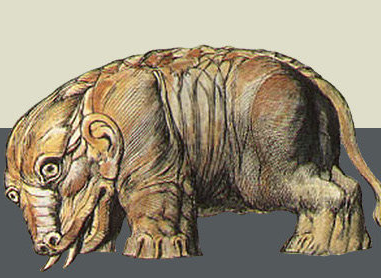Content
Scientific article
Editorial / Streck, Bernhard [Autor:in] – 2011
Streck, Bernhard
Abstract:
Pages: 1-6
Scientific article
Border crossing : a biographical approach
Gay y Blasco, Paloma
Abstract:
In this paper I concentrate on cosmopolitanism’s ‚protean quality’ (Hannerz), its elusiveness and flexibility both as analytical tool and as experience. I explore the life of Agata Gonzáles, a Gitano (Gypsy/Roma) woman from Madrid, tracing the emergence of a cosmospolitan subjectivity. In this ethnographic context, cosmopolitanism appears and disappears from view; changes in character, intensity and effect; and is at some times an ideal, even a day-dream, and at others an unavoidable and fully practical way of dealing with the world. The paper demonstrates the potential fragility of border-crossing orientations and argues the need to acknowledge the anti-heroic qualities of emer- gent cosmopolitan subjectivities.
Pages: 7-17
Scientific article
Retrospective reading of fieldnotes : living on gypsy camps
Okely, Judith
Abstract:
Decades after embarking on research among Gypsies, I examine that earlier context when there was little published discussion of participant observation practice. Snatched advice and rare texts suggested an open-ended approach rather than limited hypothesis. The anthropologist’s first weeks of chronological narrative without selection of relevance, vindicate a holistic perspective. Details reveal themes prophetically to emerge as central. There are glimpses of individuals who were to play continuing or passing, dramatic roles in the years to come. Fieldnotes both reveal and conceal. Entwined with experience and analysis, they are later transformed as texts. Fieldwork reveals embedded systems inaccessible through the quantifiable. The ‘merely anecdotal’, so maligned by positivism, has the grounded potential, as explored here, for theoretical and ethnographic overviews, beyond place and time, in this case, residence on one Gypsy encampment during the first few weeks.
Pages: 18-42
Scientific article
Gypsy anthropology : from encounter to theory
Williams, Patrick
Abstract:
To all Gypsy groups the factum is common, that they are firmly enclosed by a society, from which they want to keep distance. Analyzing the relations between this communities and the larger society meets tendencies of amalgamating as well as tendencies of separating. Among the latter the origi- nality and creativity in putting together the ‘own culture’ are striking, so that a permanent significat of distance (Gypsy identity) is opposed to flexible significants of distancing (cultural traits), which are often transformed elements of the majority culture.
Pages: 43-56
Scientific article
Horror infiniti : the gypsies as Europes tricksters
Piasere, Leonardo
Abstract:
The figure of trickster is well known to all folklore traditions round the world, even among Romani speaking groups as beng (devil) like in the Mediterranean and Balkan context. But the focus of the article concerns the transformation of Roma and other Gypsies themselves into tricksters, which can be shown in three examples: 1) Gypsies in the literature of the Italian Renaissance, 2) Gypsies in the Rumanian Ţsiganiada of the early 19th century and 3) the Gypsy cliché in the ethnography of the 20th century, which comes near to the bricoleur of Lévi-Strauss or to an indefinable entity comparable with the irrational numbers in mathematics.
Pages: 57-85
Scientific article
Between exoticization and marginalization : current problems of gypsy studies
Marushiakova, Elena; Popov, Veselin
Abstract:
The article presents different approaches and methodological problems that appear in the study of Gypsies who live in Eastern Europe, or of Eastern European Origin. Two basic paradigms of study- ing gypsies are discussed – their exoticization and their marginalisation. Studies of the Gypsies as well as their reception in social practice and policies can take on features of one or both of these two paradigms.
Pages: 86-105
Scientific article
Anthropology and gypsy studies : why are we interested in „overrolled“ cultures?
Streck, Bernhard
Abstract:
Gypsy Studies (in German: Tsiganologie) on the one side have a long tradition since the 18th century, on the other side it is still difficult to define it between social or cultural anthropology (in German: Ethnologie) and sociology. The Leipzig Forum Tsiganologische Forschung has collected data which can be explained by a paradigm of order and para-order, two systems of thinking and doing closely connected and interdependent, but in an asymmetric way, comparable with the relation of mother and daughter. Whereas anthropology tries to understand what sometimes is described as the recent losers of the civilization process, Gypsies represent a traditional skill of being marginalized, a certain way of mastering para-orders, which could be relevant for all other “overrolled” communities.
Pages: 106-123
Review
[Rezension von: Robert Feustel (Hrsg.), Zwischen Sprachspiel und Methode : Perspektiven der Diskursanalyse] / Hälterlein, Jens [Autor:in] – 2011
Hälterlein, Jens
Abstract:
Pages: 124-131
